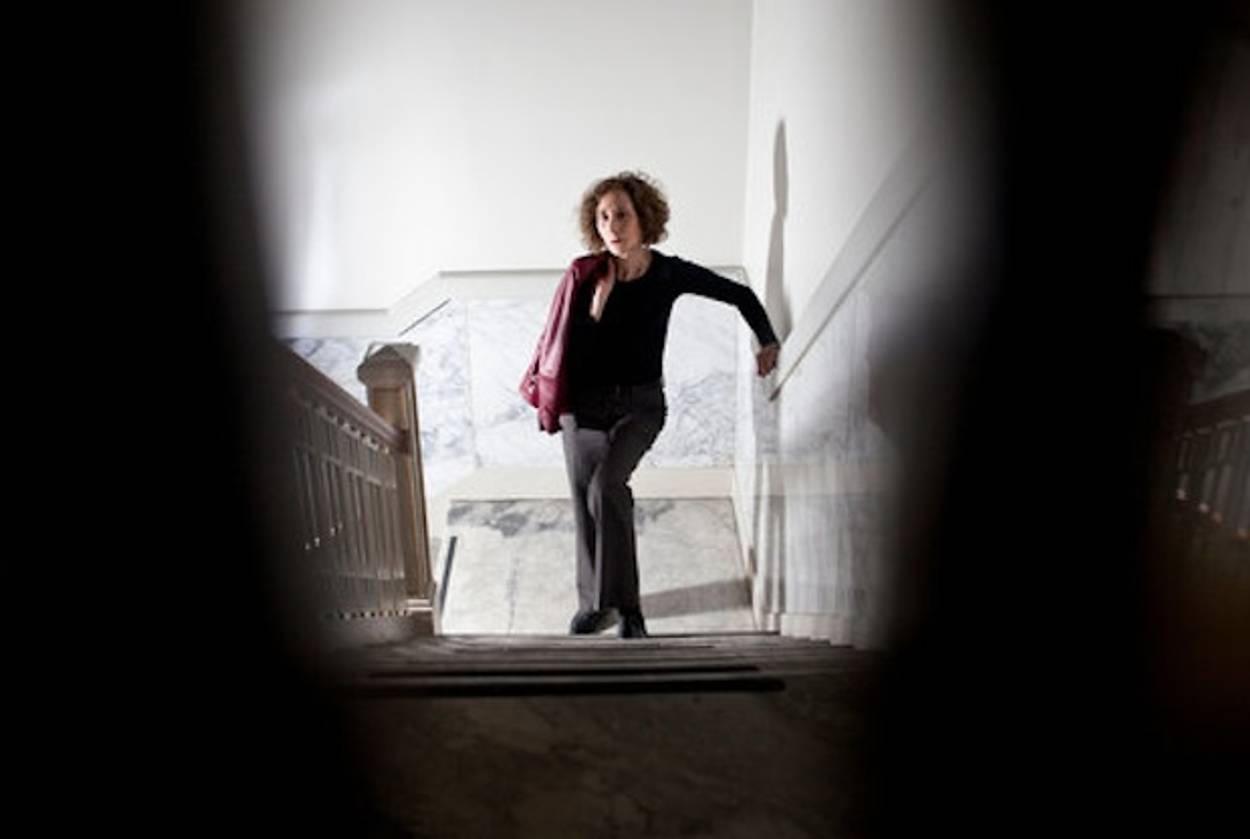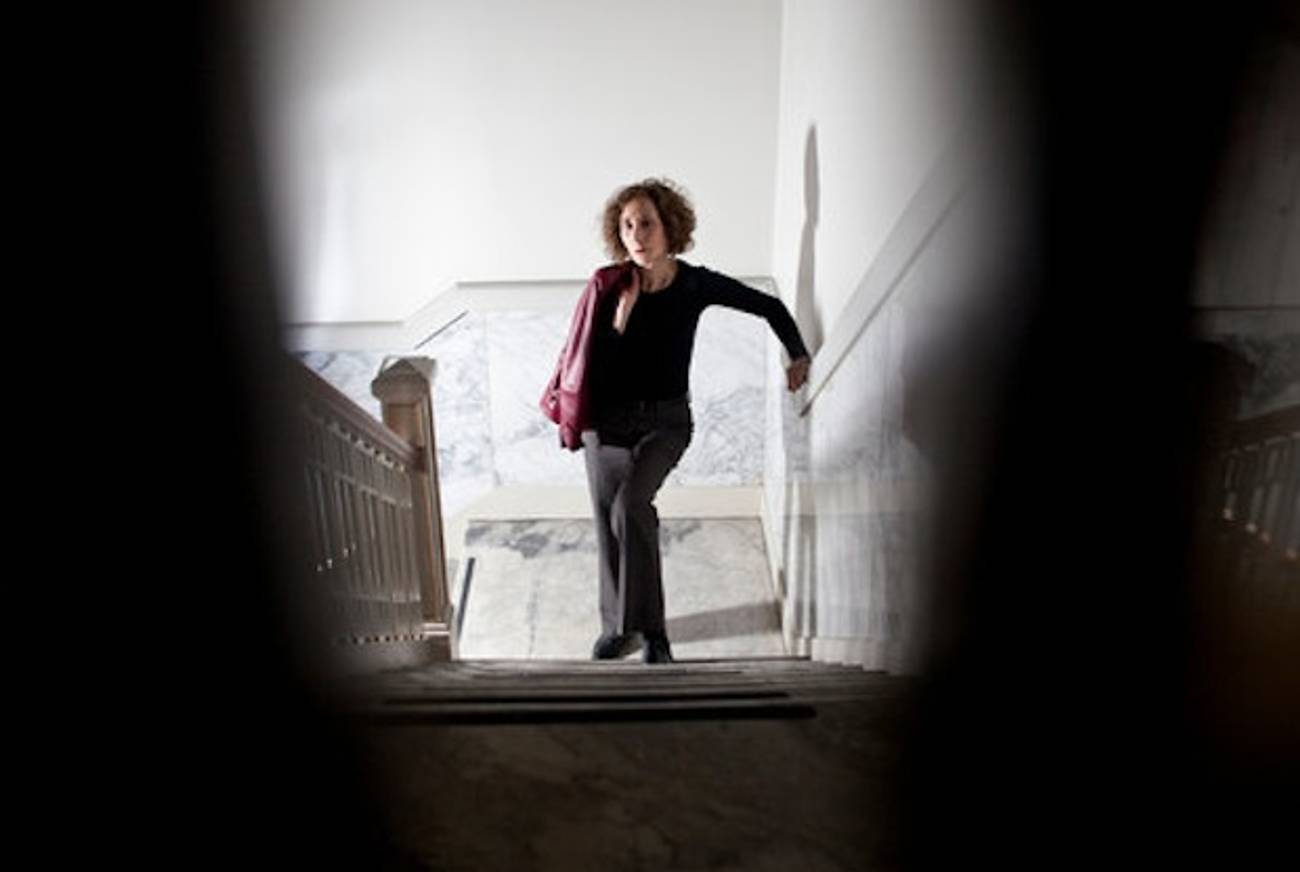Q&A: Ellen Ullman
Elissa Goldstein sits with the author of our latest original fiction




Ellen Ullman does not have the typical pedigree of a fiction writer. She began her working life as a computer programmer in the late seventies, and her first book, Close to the Machine (1997), is a memoir and meditation on her experiences as a tech geek in the burgeoning days of Silicon Valley. In that world, Ullman was something of an anomaly: a woman with a BA in English, literarily and philosophically inclined.
But as an outsider and observer of mechanics—both technological and interpersonal—Ullman makes for the ideal novelist. The building blocks of fiction are not dissimilar to the building blocks of code: Each sentence is dependent on the success of the one that precedes it, and even the smallest error can break the dream of the invented world. In Ullman’s first novel, The Bug (2003), a programmer’s life is thrown into chaos as result of an elusive “bug” that inexplicably appears and then disappears from a line of code.
Her second novel turns away from the world of computers, but stays close to the tense, psychological mood cultivated in The Bug. Set in San Francisco in the 1970s, By Blood (2012) is an eerie, neo-Gothic thriller about identity, sexuality, and family. A disgraced professor eavesdrops on a woman’s therapy sessions, which happen in the office next to his. He becomes obsessed with “the patient” to the point of interfering with her search for her birth parents. It emerges that the woman’s parents were French Jews who entrusted her to a Catholic monastery as they were fleeing the Nazis. How she came to be adopted by an American family—despite the fact that her birth mother survived the war—is the question behind “Fathers,” the latest installment in Tablet’s Original Fiction series. In this story, Ullman’s language is as precise and seductive as ever: “glaring white” shirt-cuffs are pierced with “links made of gold”; a flung-off cape “pirouettes” over the back of a chair; a grief-stricken mother holds out her arms, “curled as if still holding her baby.”
Tablet Magazine spoke with Ullman last week about the process of writing “Fathers,” exploring identity in fiction, and the challenges of portraying anti-Semitic characters with depth and sympathy. What follows is an edited transcript of our interview.
How is your story “Fathers” connected to your 2012 novel By Blood? They are quite different in setting.
‘Fathers’ is part of the exposition of the novel. I wrote it as an exploration into one of the characters, Joseph, who I thought was not a very admirable person. He went with his father to Germany to save this girl—the “patient” in By Blood—who had been entrusted to a monastery when her parents were fleeing the German invasion of France. This happened to many Jewish families at the beginning of the Holocaust. They left their children in keeping with a monastery hoping that if they survived, they would be able to come back and claim them. Some did come back, and found out that the church had baptized their children. Once a child is baptized the church refuses to return the child to the parent. The young woman By Blood finds out that she was adopted out of a Displaced Persons camp. I wanted to follow her adopted father and grandfather who were fundamentalist Catholics. Writing this story was a great challenge for character exploration, to turn it into a more complete narrative. By Blood is very much about mothers and relationships. And I thought, ‘Well, this is the story about fathers.’
Your portrayal of Joseph’s anti-Semitism is intriguing, and almost quaint. He has a fairy-tale like fear of Jews as horned creatures; he’s shocked that they’re able to disguise themselves as “normal” people in the general population. I was surprised to find myself feeling quite sympathetic toward him.
I feel the best villains are the ones you have feelings for. Not that he’s a villain. My husband’s college roommate was shocked that my husband didn’t have horns. He always thought Jews had horns. He led such a sheltered life within a Christian community, and actually didn’t know any Jews in Southern Illinois, which is the same area Joseph and his father are from. It’s the Bible belt. So I did feel sympathetic toward Joseph, because I felt he was totally unprepared for the experience. I didn’t mean to make the anti-Semitism pleasant, I wanted to explore a character who is brought up anti-Semitic, and then has to come to terms with it. It’s a story about how you can learn anti-Semitism. Also, Joseph’s father doesn’t know the world either. What he knows about Jews is what returning American soldiers told him.
The evil in this story is casual, there is a complete lack of empathy in the way the characters collaborate to take the child from her mother.
I really don’t like books when characters are just bad, or just good. I’m not going to claim there was any good in Hitler, but as a writer I feel I have to understand what is in the “average” evil person. No one is simply awful. There are complicated, psychological reasons for why we behave the way we do. I’m not excusing anything, this is just my perspective as a writer. It’s the necessity of understanding a character with as much dimensionality as I can bring to the page. Originally, I didn’t want the mother to be seen in the story, but my editor Sean McDonald said it was important to see her. That to me is the moment where you see the harm in breaking the bond between mother and child.
Do you define yourself as a Jewish writer? Would you say this story is a Jewish story?
I don’t consider myself a Jewish writer. It’s like asking, ‘Are you a woman writer?’ I’m a dark thoughts writer. I’m very influenced by the Victorians, Poe, Mary Shelley, so I guess I have a gothic imagination. Though I’ve written about technology and what it means socially and in interpersonal relationships, I thought there was more to explore of my Jewishness, and the fact that I was adopted. It was very hard for me to think, what would being religious on the other side be like? That was something I had to grapple with.
I felt that the experience of being Jewish right after the war really needed exploring. I read an article in the New York Times about a group of children who were born in the Bergen Belsen Displaced Person’s camp after the war. I had that clipping on my wall as I writing, and also I knew someone whose parents were married in a DP camp. Jews were “liberated” from the camps, with all that word seems to imply, but between the end of the war and the founding of Israel is this huge ferment.
How is the process of fiction different than writing non-fiction, for you?
Essays are narratives, they’re stories. They begin with an incident, I don’t sit down thinking, ‘I’m going to talk about this subject.’ You walk down the street, and a thought develops and then it unfolds and it’s both personal and generally informative. They’re related, in that they’re both narrative arts. Laura Miller [staff writer at Salon.com] says essays are a lot more intimate than fiction. There’s a lot of stagecraft that goes into writing a novel. You have to move characters from A to B, you have to keep track of the exposition and continuity, like in a movie or a play.
The best histories have narrative drive; there are biographies that really penetrate a character. But fiction is made up. That’s the first thing I had to understand. Once you leave the particulars of your own biography, you’re making things up. And then the questions is, “Is this just tale-telling, which may be vapid?”
In By Blood the professor, who acts as narrator, came to my office one night—his voice did—and I wrote the first twenty pages in one sitting. I thought, ‘Well this is crazy!’ But there was something persistent in the darkness of this voice that felt very internal for me. I wrote fluently in his voice. You hear writers say ‘the character took me over,’ and I didn’t think that was real. But this character and I inhabited each other.
Elissa Goldstein is Tablet’s director of audience development. She also produces Unorthodox. Follow her on Twitter here.